Should Businesses Focus on AI? THE PROS AND CONS
AI has transformed the landscape of technology in the contemporary digital era of seamless business communication and operation. This ultimately leads to increased efficiency, accuracy, and innovation. But along with the benefits that we have, AI also comes with its own set of challenges. Now, let us go into detail about the pros and cons of artificial intelligence in business.
Benefits of AI in business
Better Efficiency and Productivity
AI has many great benefits such as Automation of Repetitive Task Made Possible– Employees can focus on more strategic tasks. AI really is capable of handling big data and big data processing at a high speed which helps gain insights from it and make decisions faster.
- Automation of boring jobs: Tools driven by AI can automate processes like data entry, processing invoices, and answering customer service questions.
- Speed: Machine-learning algorithms are fast to process the data which ensures the faster turnaround time.
- Resource optimization: By minimizing human errors and optimizing workflows, businesses can lower operational costs.
Improved Customer Experiences
Artificial Intelligence (AI) helps in making customer experience better and engaging by providing them personalized and connected experiences.
- AI-powered chatbots and virtual assistants: AI-powered chatbots can provide immediate support through answering customers’ questions to improve response times.
- Tailored recommendations: AI on data can forecast the counsels which customers want by offering them specific product suggestions.
- Improved customer understanding: By examining customer behavior, AI provides actionable insights to help businesses improve their strategies.
Data-Driven Decision Making
From analysing data to making decisions - up until now, companies have managed with tools that AI provided.
- Forecasting: Businesses rely on AI to predict trends, sales and possible risks.
- Real-time insights: AI offers real-time data, enabling leaders to adapt to transforming market conditions.
- Enhanced precision: Algorithms analyze data in a vacuum without human bias, leading to objective results.
Scalability
AI enables companies to expand without a corresponding increase in their workforce or other resources.
- Scalability without stress: Automation helps businesses manage larger workflows without effort.
- Global reach: AI solutions such as language translation and localization allow businesses to grow
Cost Reduction
Initial investment in AI systems may seem steep, but they offer substantial long-term cost savings.
- Decrease in labor costs: Automation helps in eliminating the need for a massive workforce.
- Reduced errors: AI can reduce expensive errors to increase overall operational efficiency.
Pros and Cons of Artificial Intelligence in Business
High Implementation Costs
Say, the piloting and rolling out of AI systems can be financièrement duhuesome for most firms.
- FEW MAJOR AREAS: Initial investment: Creating AI tech needs a lot of financial resources.
- Continuous Support: The cost increases due to regular updates and optimization of the system.
- AGI: Specialized hiring — Hiring AI experts can put a strain on budgets, especially if you’re a smaller organization.
Job Displacement
The emergence of AI has given rise to fears of job displacement and unemployment in some industries.
- Role automation: Machine learning, robotics, and automation software are particularly scary when applied to jobs in manufacturing, customer service, and data processing.
- Skill gap: Employees will need to reskill or upskill in an AI-driven work environment.
- Social consequences: A high level of unemployment brings economic and social impact.
Ethical and Privacy Concerns
AI usage gives rise to Various Ethical Questions and Privacy Concerns
- Data privacy: Businesses commonly gather and analyze extensive personal data, thus making breaches more probable.
- Resulting in bias in AI systems: If not trained properly, algorithms can reinforce the biases present in society.
- Not transparent: most of AI systems work as “black boxes” and know nothing about their decision making processes.
Dependence on Technology
An overreliance on the solutions offered by an AI can put businesses at risk for technology failures.
Another reason to be cautious is the so-called system malfunctions — technical failure that can interfere with operation and thus cause significant losses.
- Here are some potential obstacles:Cybersecurity risks: AI systems are vulnerable to hacks and other cyber risks.
- Diminished personal connection: Automating too much can compromise the personalized experiences all customers want.
Limited Creativity
AI is great at processing data but lacks the human touches of creative thinking and emotional intelligence.
- Rigid problem-solving: AI cannot adjust to new or unexpected problems.
- No innovation: Businesses focusing on too much on AI may fall short of creative possibilities by human intuition.
Balancing the Pros and Cons
So to leverage AI advantages and minimize negative effects, corporations need to Strategize on the roof-top level:
- Invest in Employee Training: Retraining employees is an essential measure to enable them to collaborate effectively with AI.
- Prioritise ethical AI: Ensure systems are transparent, unbiased and compliant with data protection regulations
- AI meets human intelligence: A combination of expertise and AI can use complementarity to its advantage.
Implementing these strategies enables companies to use AI to fuel growth and innovation while mitigating potential challenges.





